Healthcare Provider Update: Healthcare Provider Information for Blue Cross Blue Shield Blue Cross Blue Shield (BCBS) operates as a federation of independent health insurance companies across the United States. Each individual organization under the BCBS umbrella serves specific geographical regions, offering a range of health insurance products and services, including individual and group health plans, dental and vision coverage, and more. Notable regional affiliates include Blue Cross Blue Shield of Illinois, Blue Cross Blue Shield of Texas, and Blue Cross Blue Shield of Florida, among others, facilitating comprehensive healthcare management and coverage options for millions of members nationwide. Healthcare Cost Increases in 2026 In 2026, significant increases in health insurance premiums are anticipated, particularly for plans available through the Affordable Care Act (ACA) marketplaces. Record hikes, as high as 66% in some states, are expected as a result of rising medical costs, the potential expiration of enhanced federal premium subsidies, and aggressive rate adjustments by major insurers like Blue Cross Blue Shield. The Kaiser Family Foundation warns that a staggering 92% of marketplace enrollees could see their out-of-pocket premiums surge by over 75% due to this confluence of factors, which will likely price many middle-income Americans out of affordable health coverage. Click here to learn more

With 2021 wrapped up and going into the new year, the IRS just released Revenue Procedure 2021-45 and Notice 2021-61 which detail the tax changes and cost of living adjustments for 2022. The main points of this new release that will most likely affect Blue Cross Blue Shield employees would be:
- This year, the tax filing deadline is on April 18, instead of the typical April 15.
- The standard deduction for married couples filing jointly for tax year 2022 rises to $25,900 up $800 from the prior year.
- For single taxpayers and married individuals filing separately, the standard deduction rises to $12,950 for 2022, up $400, and for heads of households, the standard deduction will be $19,400 for tax year 2022, up $600.
Also, the personal exemption for tax year 2022 remains at 0, as it was for 2021. This elimination of the personal exemption was a provision in the Tax Cuts and Jobs Act.
If you experienced a job change, retirement or lapse in employment from Blue Cross Blue Shield, the “lookback” rule may be an important option to consider when filing taxes this year. You’ll also have the option to use your 2019 earned income for your 2021 return thanks to changes from the American Rescue Plan Act. This rule is mainly used for calculation of the Earned Income Tax Credit and the Child Tax Credit.
Remote workers employed by Blue Cross Blue Shield might face double taxation on state taxes. Due to the pandemic, many employees moved back home which could have been outside of the state where they were employed. Last year, some states had temporary relief provisions to avoid double taxation of income, but many of those provisions have expired. There are only six states that currently have a ‘special convenience of employer’ rule: Connecticut, Delaware, Nebraska, New Jersey, New York, and Pennsylvania. If you work remotely for Blue Cross Blue Shield, and if you don't currently reside in those states, consult with your tax advisor if there are other ways to mitigate the double taxation.
Retirement account contributions: Contributing to your Blue Cross Blue Shield 401k plan can cut your tax bill significantly, and the amount you can save has increased for 2022. In 2022, the IRS has raised the contribution limit for a 401k to $20,500 - up by $1,000. Meanwhile, Blue Cross Blue Shield workers who are older than 50 years old are eligible for an extra catch-up contribution of $6,500.
There are important changes for the Earned Income Tax Credit (EITC) that you, as a taxpayer employed by Blue Cross Blue Shield, should know:
- The income threshold has been increased for single filers with no children; the American Rescue Plan Act temporarily boosted it from $543 to $1,502 in 2021; this expansion has not been carried over to the 2022 tax year.
- Married taxpayers filing separately can qualify: You can claim the EITC as a married filing separately if you meet other qualifications. This wasn't available in previous years.
Increased deduction for cash charitable contributions: In years past, the threshold was $300 for both single and joint filers, but in 2022 that changed to $300 for single filers and up to $600 for joint filers.
Child Tax Credit changes:
- A $2,000 credit per dependent under age seventeen..
- Income thresholds of $400,000 for married couples and $200,000 for all other filers (single taxpayers and heads of households).
- A 70 percent, partial refundability affecting individuals whose tax bill falls below the credit amount.
2022 Tax Brackets
-png.png?width=575&name=image%20(18)-png.png)
Inflation reduces purchasing power over time as the same basket of goods will cost more as prices rise. In order to maintain the same standard of living throughout your retirement after leaving Blue Cross Blue Shield, you will have to factor rising costs into your plan. While the Federal reserve strives to achieve 2% inflation rate each year, in 2021 that rate shot up to 7% a drastic increase from 2020’s 1.4%. While prices as a whole have risen dramatically, there are specific areas to pay attention to if you are nearing or in retirement from Blue Cross Blue Shield, like healthcare. Many Blue Cross Blue Shield corporate retirees depend on Medicare as their main health care provider and in 2022 that healthcare out-of-pocket premium is set to increase by 14.5%. In addition to Medicare increases, the cost of over-the-counter medications is also projected to increase by at least 10%. The Employee Benefit Research Institute (ERBI) found in their 2022 report that couples with average drug expenses would need $296,000 in savings just to cover those expenses in retirement. It is crucial to take all of these factors into consideration when constructing your holistic plan for retirement from Blue Cross Blue Shield.
*Source: IRS.gov, Yahoo, Bankrate
Featured Video
Articles you may find interesting:
- Corporate Employees: 8 Factors When Choosing a Mutual Fund
- Use of Escrow Accounts: Divorce
- Medicare Open Enrollment for Corporate Employees: Cost Changes in 2024!
- Stages of Retirement for Corporate Employees
- 7 Things to Consider Before Leaving Your Company
- How Are Workers Impacted by Inflation & Rising Interest Rates?
- Lump-Sum vs Annuity and Rising Interest Rates
- Internal Revenue Code Section 409A (Governing Nonqualified Deferred Compensation Plans)
- Corporate Employees: Do NOT Believe These 6 Retirement Myths!
- 401K, Social Security, Pension – How to Maximize Your Options
- Have You Looked at Your 401(k) Plan Recently?
- 11 Questions You Should Ask Yourself When Planning for Retirement
- Worst Month of Layoffs In Over a Year!
- Corporate Employees: 8 Factors When Choosing a Mutual Fund
- Use of Escrow Accounts: Divorce
- Medicare Open Enrollment for Corporate Employees: Cost Changes in 2024!
- Stages of Retirement for Corporate Employees
- 7 Things to Consider Before Leaving Your Company
- How Are Workers Impacted by Inflation & Rising Interest Rates?
- Lump-Sum vs Annuity and Rising Interest Rates
- Internal Revenue Code Section 409A (Governing Nonqualified Deferred Compensation Plans)
- Corporate Employees: Do NOT Believe These 6 Retirement Myths!
- 401K, Social Security, Pension – How to Maximize Your Options
- Have You Looked at Your 401(k) Plan Recently?
- 11 Questions You Should Ask Yourself When Planning for Retirement
- Worst Month of Layoffs In Over a Year!
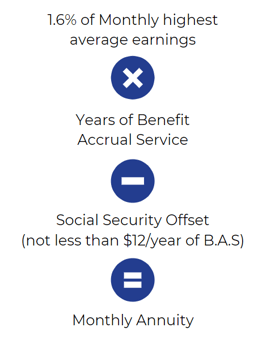
Highest Average Earnings is the monthly average of your regular earnings for the 36 consecutive months in which they’re the highest.
In most cases, this will be the sum of your last 36 months divided by 36.
The applicable interest rate is a separate average of each of the three segment rates for the fifth, fourth and third months preceding your annuity start date. The three segment rates are calculated by the IRS according to regulations that are also part of the Pension Protection Act of 2006 and reflect the yields of short-, mid-, and long-term corporate bonds. (Note: Chevron also has Legacy Unocal and Legacy Texaco Retirement Plans)
Different Plans
Similar to Chevron, AT&T has many different plans available. With AT&T, they have different pension plan formulas for management & non-management. Lets look at a sample non-management plan.
AT&T non-management employees have their own Craft/non-management pension plan. Let's take a look at a pension example for a gentleman by the name of Joe Smith who is hourly and using the Craft/non-management pension plan.
In 1990, Joe is hired by AT&T and participates in the Craft Pension Plan:
Craft Pension Plan
-
Craft has a defined benefit plan that uses pension bands.
-
A pension band determines your benefits based on your job title/grade level/occupation.
- Joe will receive a monthly dollar amount into his account for each year of service.
-
Joe's benefit (pension band may change yearly).
-
A pension band determines your benefits based on your job title/grade level/occupation.

While you may be ready for some rest and relaxation, without the stress and schedule of your full-time career with Blue Cross Blue Shield, it may make sense to you financially, and emotionally, to continue to work.
Financial benefits of working
Make up for decreased value of savings or investments. Low interest rates make it great for lump sums but harder for generating portfolio income. Some people continue to work to make up for poor performance of their savings and investments.
Maybe you took an offer from Blue Cross Blue Shield and left earlier than you wanted with less retirement savings than you needed. Instead of drawing down savings, you may decide to work a little longer to pay for extras you’ve always denied yourself in the past.
Meet financial requirements of day-to-day living. Expenses can increase during your retirement from Blue Cross Blue Shield and working can be a logical and effective solution. You might choose to continue working in order to keep your insurance or other benefits — many employers offer free to low cost health insurance for part-time workers.
Emotional benefits of working
You might find yourself with very tempting job opportunities at a time when you thought you’d be withdrawing from the workforce.
Staying active and involved. Retaining employment after Blue Cross Blue Shield, even if it’s just part-time, can be a great way to use the skills you’ve worked so hard to build over the years and keep up with friends and colleagues.
Enjoying yourself at work. Just because the government has set a retirement age with its Social Security program doesn’t mean you have to schedule your own life that way. Many people genuinely enjoy their employment and continue working because their jobs enrich their lives.
Blue Cross Blue Shield employees interested in planning their retirement may be interested in live webinars hosted by experienced financial advisors. Click here to register for our upcoming webinars for Blue Cross Blue Shield employees.
Rising Interest Rates e-book
https://www.irs.gov/newsroom/irs-provides-tax-inflation-adjustments-for-tax-year-2022
https://news.yahoo.com/taxes-2022-important-changes-to-know-164333287.html
https://www.nerdwallet.com/article/taxes/federal-income-tax-brackets
https://www.the-sun.com/money/4490094/key-tax-changes-for-2022/
https://www.bankrate.com/taxes/child-tax-credit-2022-what-to-know/
What type of retirement savings plan does Blue Cross Blue Shield offer to its employees?
Blue Cross Blue Shield offers a 401(k) retirement savings plan to help employees save for their future.
How can employees of Blue Cross Blue Shield enroll in the 401(k) plan?
Employees can enroll in the Blue Cross Blue Shield 401(k) plan by completing the enrollment process through the company’s HR portal.
Does Blue Cross Blue Shield provide any matching contributions to the 401(k) plan?
Yes, Blue Cross Blue Shield offers a matching contribution to the 401(k) plan, which helps employees maximize their retirement savings.
What is the eligibility requirement for employees to participate in Blue Cross Blue Shield's 401(k) plan?
Employees are typically eligible to participate in Blue Cross Blue Shield's 401(k) plan after completing a specified period of service, as outlined in the plan documents.
Can employees of Blue Cross Blue Shield change their contribution percentage to the 401(k) plan?
Yes, employees can change their contribution percentage to the Blue Cross Blue Shield 401(k) plan at any time, subject to the plan's guidelines.
What investment options are available in Blue Cross Blue Shield's 401(k) plan?
Blue Cross Blue Shield offers a variety of investment options in its 401(k) plan, including mutual funds, target-date funds, and other investment vehicles.
Is there a vesting schedule for the employer match in Blue Cross Blue Shield's 401(k) plan?
Yes, Blue Cross Blue Shield has a vesting schedule for employer matching contributions, which determines when employees gain full ownership of those funds.
How can employees access their 401(k) account information at Blue Cross Blue Shield?
Employees can access their 401(k) account information through the online portal provided by Blue Cross Blue Shield’s retirement plan administrator.
Are there any fees associated with Blue Cross Blue Shield's 401(k) plan?
Yes, there may be administrative fees associated with the Blue Cross Blue Shield 401(k) plan, which are disclosed in the plan documents.
What happens to an employee's 401(k) balance if they leave Blue Cross Blue Shield?
If an employee leaves Blue Cross Blue Shield, they have several options for their 401(k) balance, including rolling it over to another retirement account or leaving it in the Blue Cross Blue Shield plan if permitted.
/General/General%208.png?width=1280&height=853&name=General%208.png)





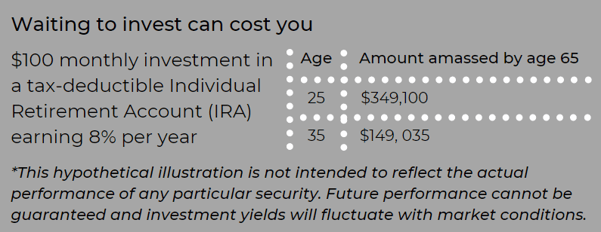

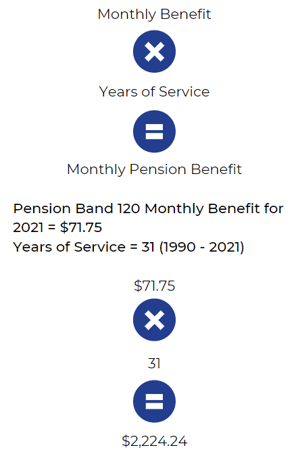

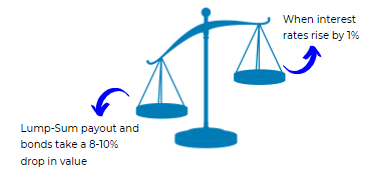



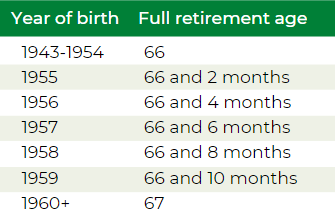

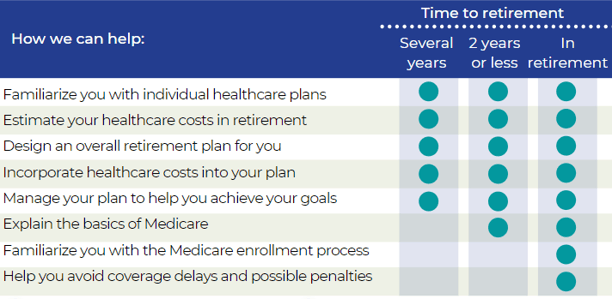






-2.png?width=300&height=200&name=office-builing-main-lobby%20(52)-2.png)









.webp?width=300&height=200&name=office-builing-main-lobby%20(27).webp)


-2.png)









.webp)